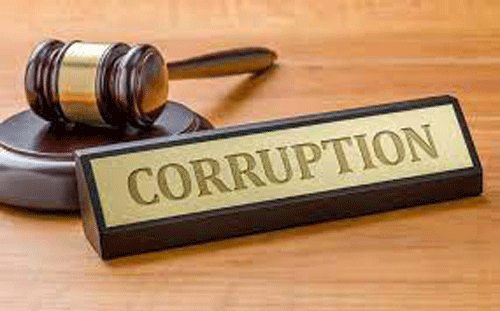
BY MTHANDAZO NYONI
ZIMBABWE’S development trajectory remains under threat from nepotism and corruption, the Zimbabwe Coalition for Debt and Development (Zimcodd) said last week.
Zimcodd said this concoction of governance epidemics had culminated in rampant abuse of public resources by the political elite and powerful bureaucrats.
It said the recent auditor-general’s report on COVID-19 funds attested to this assertion as approximately US$89 million meant for vulnerable Zimbabweans affected by the pandemic was looted.
The money was meant for cushioning the elderly, people with disabilities, child-headed households, food insecure households, chronically-ill persons and small-to-medium enterprises whose operations have been affected by lockdowns.
The report noted that the US$89 million could not be accounted for because “the processes of identification and assessment of intended beneficiaries was not properly co-ordinated.
This resulted in reliance on unreliable databases of beneficiaries, processing of payments to duplicate beneficiary names and beneficiaries who had similar identity numbers, but of different gender and dates of birth.”
However, abuse of public resources by public officials is not a new phenomenon in Zimbabwe.
- Chamisa under fire over US$120K donation
- Mavhunga puts DeMbare into Chibuku quarterfinals
- Pension funds bet on Cabora Bassa oilfields
- Councils defy govt fire tender directive
Keep Reading
Every year, the auditor-general unearths abuse of public finances.
However, only a few looters have been brought to book.
But as officials, who break the law continue to roam the streets, reports last week said that the Zimbabwe National Water Authority (Zinwa) had been rocked by a tender scandal involving US$109 million for the construction of Kunzvi Dam, which was controversially awarded to a Chinese firm called China Nanchang, when there was a cheaper bid worth US$66 million from Sino Hydro, another Chinese firm.
This represents a variance of US$43 million which could have been channelled to procurement of more vaccines as well as improvement of the living conditions of the masses by strengthening social protection systems.
“The Zimbabwean governance crisis is further exacerbated by Zacc (Zimbabwe Anti-Corruption Commission), an ombudsman institution with a clearly defined constitutional mandate to address corruption but lacking the power to deter it,” Zimcodd said.
Last week, Zacc chairperson Loice Matanda-Moyo noted that corruption was rife in government, parastatals and other entities.
“It is ironic that, even though Zacc is aware of the pervasiveness of corruption in government it has made little headway towards ending it. As a result, it is the masses who continue to suffer while the elite loot,” Zimcodd noted in its paper.
“There is no excuse for Zacc not prosecuting corrupt public officials as it has sanctioning powers unlike other commissions which only refer the matters to the police.
“If Zimbabwe is to foster sustainable development and realise Vision 2030, she has to embrace good governance, meritocracy and corruption eradication because currently she is perambulating on the wrong trajectory.”
Zimcodd said meta-governance, if fully embraced and implemented, could be the answer Zimbabwe has been waiting for as it would enable watchdog institutions to operate fully and independently.











